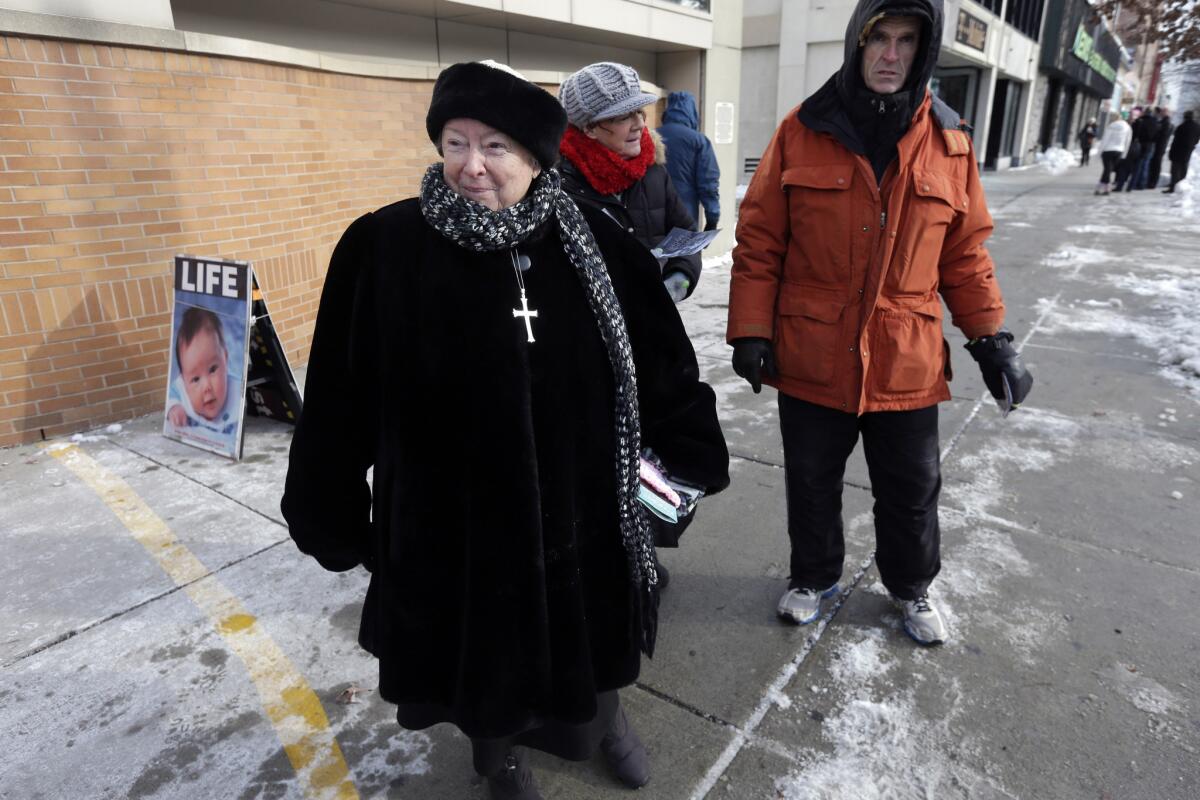Opinion: Supreme Court abortion clinic decision could help labor organizers

- Share via
There is no way to look at the Supreme Court’s decision Monday in the Illinois home health care workers case other than as a defeat for labor. Yeah, it was limited and could have been worse, but you just know from Judge Samuel A. Alito Jr.’s language that there are more rulings to come. And they won’t be decided in favor of American workers.
The oddest bit of the decision was the Orwellian conclusion that people who are paid by the state of Illinois to do work for the state of Illinois are not full public employees. Yes, the money to pay the home health care workers comes from the federal Medicaid program, but that’s still public money paid for jobs performed as part of the public mandate. It’s like saying police whose salaries are paid under special COPS community policing programs aren’t full public employees.
But it was the decision last week overturning Massachusetts’s law limiting abortion protesters that carries a silver lining for labor. Or at least for organizers. In that case, the court ruled that the state law setting a 35-foot exclusion zone for antiabortion activists seeking to talk to women entering abortion clinics violated the protesters’ 1st Amendment rights.
So why is that good for labor? Because free speech is free speech, no matter the topic. If antiabortion activists now are free to whisper in the ears of women entering abortion clinics, so too should union activists be able to whisper in the ears of workers heading into their job sites. And there’s no reason to think labor activists will de facto be more unruly than antiabortion protesters. The ruling also should provide a platform for opponents to bizarre legislation like Michigan’s proposed anti-picketing law, which would allow bosses to seek preliminary injunctions against workers before any picketing take place.
Existing laws and court rulings make it clear that if pickets become obstructive or violent, then injunctions may be sought to enjoin or limit future pickets. But absent an action to react to, such injunctions aren’t granted. Michigan’s proposed law would change that. (Tennessee has played with such a law too).
But the Supreme Court decision in the Massachusetts abortion clinics case defines such prophylactic action as a violation of the 1st Amendment.
“It hardly bears stating that a court’s authority to issue a closely tailored injunction against a party in such circumstances is not justification for a legislature to enact a broadly applicable prohibition on speech applying prospectively to the public at large,” the AFL-CIO argued in an amicus brief in the Massachusetts case. “Because the law at issue here constitutes such an overbroad legislative enactment, it is, therefore, unconstitutional.”
The court agreed. Like I said, a silver lining for labor activists, albeit a thin one.
Follow Scott Martelle on Twitter @smartelle
More to Read
A cure for the common opinion
Get thought-provoking perspectives with our weekly newsletter.
You may occasionally receive promotional content from the Los Angeles Times.







